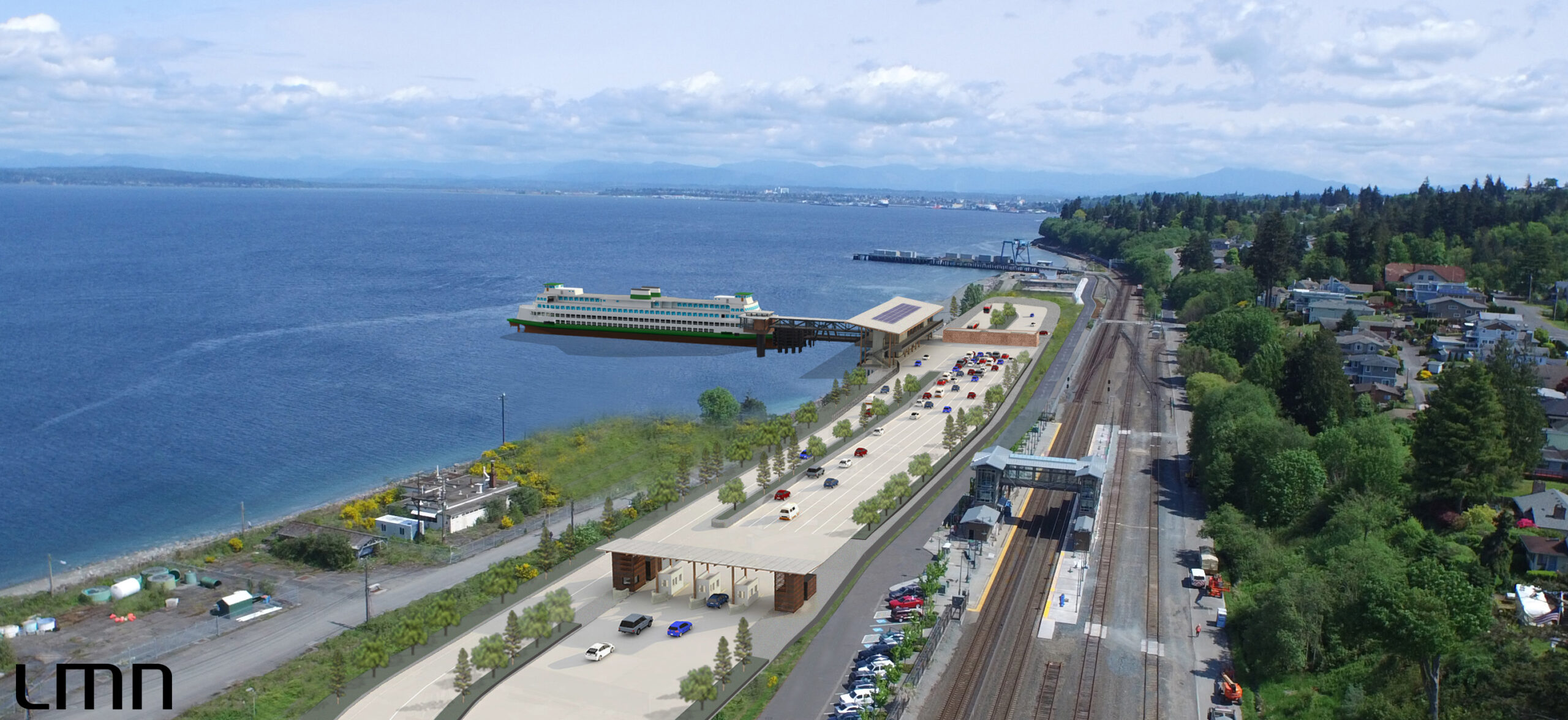The Washington State House of Representatives voted overwhelmingly this morning on a bipartisan basis to adopt a transportation budget for 2019–2021 (ESHB 1160) developed by the House Transportation Committee, chaired by Jake Fey. The vote was ninety to five, with three excused.
The five nays were a mix of Democrats and Republicans: Sherry Appleton, Drew Hansen, Michelle Caldier, Vicki Kraft, and Jeff Morris. The roll call was as follows:
Roll Call
HB 1160
Transportation budget 19–21
Final Passage
3/29/2019Yeas: 90; Nays: 5; Excused: 3
Voting Yea: Representatives Barkis, Bergquist, Blake, Boehnke, Callan, Chambers, Chandler, Chapman, Cody, Corry, Davis, DeBolt, Dent, Doglio, Dolan, Dufault, Dye, Entenman, Eslick, Fey, Fitzgibbon, Gildon, Goehner, Goodman, Graham, Gregerson, Griffey, Harris, Hoff, Hudgins, Irwin, Jenkin, Jinkins, Kilduff, Kirby, Klippert, Kloba, Kretz, Leavitt, Lovick, MacEwen, Macri, McCaslin, Mead, Morgan, Mosbrucker, Orcutt, Ormsby, Ortiz-Self, Orwall, Paul, Pellicciotti, Peterson, Pettigrew, Pollet, Ramos, Reeves, Riccelli, Robinson, Rude, Ryu, Santos, Schmick, Sells, Senn, Shea, Shewmake, Slatter, Smith, Springer, Stanford, Steele, Stokesbary, Stonier, Sullivan, Sutherland, Tarleton, Thai, Tharinger, Valdez, Van Werven, Vick, Volz, Walen, Walsh, Wilcox, Wylie, Ybarra, Young, Chopp
Voting Nay: Representatives Appleton, Caldier, Hansen, Kraft, Morris
Excused: Representatives Frame, Lekanoff, Maycumber
The approximately $10 billion budget will keep the Washington State Patrol, Washington State Ferries, and WSDOT Rail Program humming in addition to the state’s aviation services and highway maintenance/highway construction. It includes money for a long list of projects, including the removal of barriers to fish passage.
Highway megaprojects funded by this budget include:
- SR 520 corridor improvements on the west end
- ($396 million)
- Corridor widening and improvements on I‑405 from Renton to Bellevue
- ($384 million)
- Preliminary engineering, right-of-way acquisition, and early construction on the Puget Sound Gateway, SR 167, and SR 509
- ($265 million)
- Expansion of the I‑5 corridor through Joint Base Lewis-McChord
- ($165 million)
- Construction of US 395 in the North Spokane Corridor
- ($164 million)
The objective of most of these megaprojects is to widen highways or convert existing roads into highways by adding new lanes, which our team considers to be wasteful and not in line with our goal of reducing climate damaging air pollutants.
Widening I‑5 through JBLM, for example, will not improve traffic because it will simply encourage more people to drive… a well documented phenomenon called induced demand that we have discussed for years here on the Cascadia Advocate.
WSDOT (the Washington State Department of Transportation) knows all about induced demand, but for reasons we can’t fathom, the department and the Legislature are still moving forward with these multimillion dollar highway projects.
I‑5 is already at least three lanes wide in each direction between Tacoma and Olympia. Why isn’t the state converting one of the lanes to exclusive use by high occupancy vehicles during peak hours and providing funding for Intercity Transit, Pierce Transit, and Sound Transit to increase the frequency of bus service through the corridor on that converted lane? That would be a lot cheaper and have the potential to actually provide an alternative to people trying to fight JBLM traffic.
More lanes just means more congestion. Ask Los Angeles.
On the brighter side, the budget contains funding for Washington State Ferries to continue building new terminals in downtown Seattle (at Colman Dock) and in Mukilteo. Both terminals were sorely in need of an upgrade. The new Mukilteo terminal that the state is building on the site of a former U.S. Air Force fueling facility will offer pedestrians and bicyclists a much better onboarding experience.
It will also be seismically safe and be closer to Sound Transit’s Mukilteo Sounder station. The passenger waiting area was designed to be light on the earth.

This budget also funds projects to electrify ferry vessels, which is fantastic.
“For the acquisition of a hybrid-electric, 144-car vessel, $99 million is provided in the 2019–21 biennium, with the intent to fund the vessel completion in the ensuing biennium and to provide funding for an additional vessel at that time,” a staff analysis explains. “In addition, two existing Jumbo Mark II vessels will be converted to operate in hybrid capacity at a cost of $44 million, resulting in 25 percent savings in fuel costs. Additionally, $500,000 is provided to WSDOT for an electric ferry planning team to develop long-range implementation plans.”
Clark County legislators are excited that this transportation budget contains funding to restart the process of replacing the bridge that carries I‑5 across the Columbia River into Oregon. The last such attempt, the Columbia River Crossing project, collapsed due to a myriad of issues, including Republican opposition to TriMet MAX light rail on the bridge. (MAX has continued to expand within Oregon since then.)
Some of the smallest pieces of this budget are easily the best ones.
For example, here’s another highlight from the staff analysis:
“The Chair’s budget proposal provides an additional $10 million for special needs transportation services, through both transit agencies and nonprofit service providers. Several other items are also funded, including $485,000 for an expanded summer ORCA pilot program for eligible high school students; $750,000 for the Intercity Transit DASH program; and $250,000 for a pilot program that will provide improved access to transit for homeless individuals that have very low income.”
There’s also $12 million for “a new capital grant program to aid transit authorities in funding cost-effective capital electrification projects.” And: “$250,000 is provided to the WSDOT Rail Program for a study of the feasibility of an east-west intercity passenger rail system, with service to be considered for Auburn, Cle Elum, Yakima, Tri-Cities, Ellensburg, Toppenish, and Spokane.”
Hurrah for the WSDOT rail program! It would be fantastic to see cross-state commuter rail service. Amtrak Cascades has been a boon for travelers needing to get between Seattle and Portland and not wanting to fight I‑5 traffic. But there is no comparable service running across the Cascades. And there should be.
These transit appropriations are all great. More of these in the future, please.


Comments are closed.